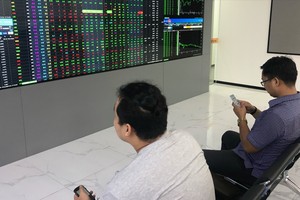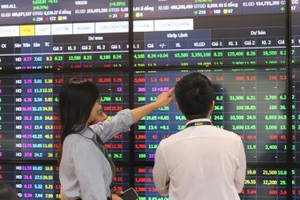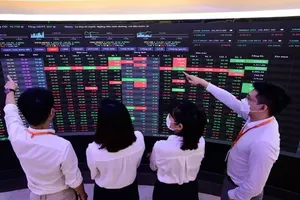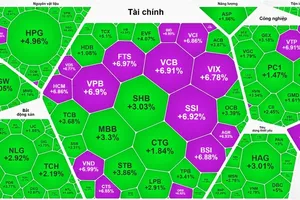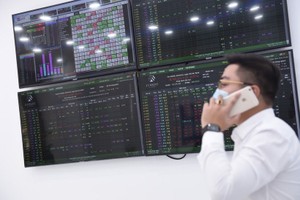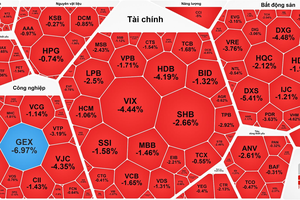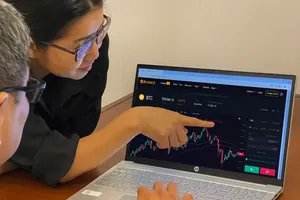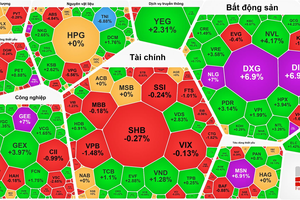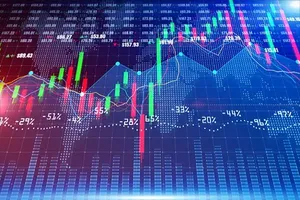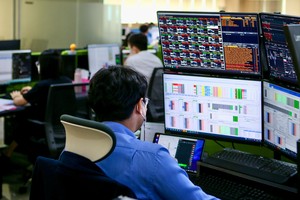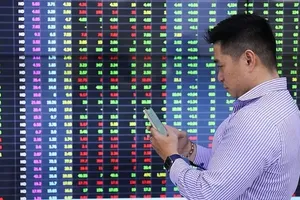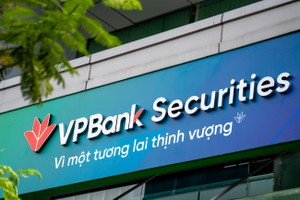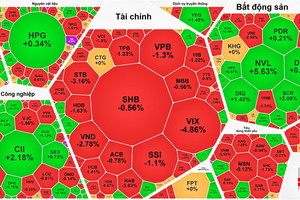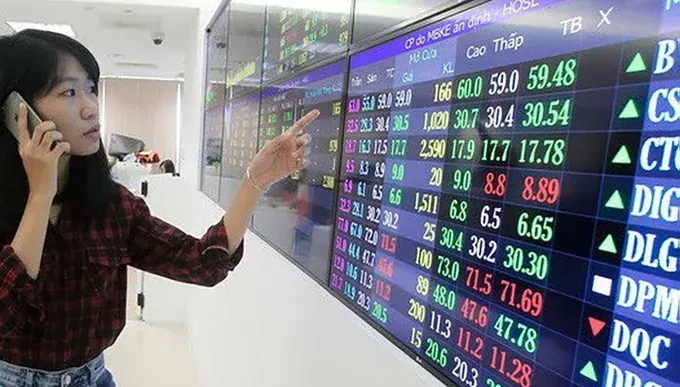
During the trading session on July 21, the VN-Index touched its historic peak of 1,500 points, a move that reflects the market’s powerful transformation, driven especially by domestic economic policies. A key factor creating this new “wave” is the formidable flow of capital pouring into the market from both domestic and international investors.
In the first two weeks of July 2025, daily trading value surged to between VND34-35 trillion (US$1.33 billion), double the average of previous months. Foreign investors also reversed their trend, switching from net sellers to strong net buyers, with total net purchases in the first half of July exceeding VND13 trillion ($497 million).
Economists voiced that current fiscal and monetary policies are being managed to support growth, with the government targeting a GDP increase of 8 percent or more for 2025. When money supply growth is robust, the stock market is a natural beneficiary of this liquidity.
Director Nguyen Minh Hoang of Analysis at VFS Securities noted that capital flow into the market is accelerating rapidly, with some sessions surpassing VND40 trillion ($1.5 billion). This, coupled with high liquidity, has bolstered confidence in a deep and long-term growth cycle. “This is the start of a strong upward trend”, he said.
“The VN-Index’s recovery reflects long-term optimism about reforms and economic prospects, as investors have shed their earlier caution”, Director Hoang commented. “The index could certainly head toward the 1,600-point region this year, especially with GDP targeted at 8 percent growth and credit expansion potentially reaching 16-18 percent by year-end.”
Dr Can Van Luc, member of the National Financial and Monetary Policy Advisory Council, assessed Vietnam’s 7.52 percent economic growth in the first half of the year as a positive result with many bright spots.
Specifically, credit grew by 9.9 percent, with total outstanding loans reaching over VND17.2 quadrillion ($661.5 billion). Public investment disbursement exceeded 32 percent of the annual plan, reaching nearly VND264.8 trillion ($10.18 billion). “These are drivers that not only contribute to high economic growth but also propel the stock market's breakthrough”, he said.
VN-Index officially surpasses 1,500 Points
The stock market surged in the trading session on July 22, with the VN-Index formally clearing its historic 1,500-point peak to set a new high of 1,509.54 points. At the market close, the VN-Index was up 24.49 points (1.65 percent), with 224 stocks advancing, 103 declining, and 43 unchanged.
On the Hanoi Stock Exchange, the HNX-Index also rose by 2.06 points (0.84 percent) to 247.85 points. Market liquidity remained high, with a total trading value of approximately VND36.4 trillion (over $1.38 billion) across both exchanges.
Expectations are running high as the timeline for Vietnam’s upgrade to “emerging market” status draws near, a move that promises to attract billions of dollars in foreign capital. Recently, JPMorgan, the largest U.S. bank, upgraded its assessment of Vietnam’s stock market to “overweight” and forecast that the VN-Index could reach 1,600 points in an optimistic scenario by the end of the year.
“There is a high probability that FTSE Russell will upgrade Vietnam’s stock market to emerging market status in its September review”, a JPMorgan expert assessed. “This would subsequently trigger an inflow of over $500 million to $1 billion in passive and active capital, respectively.”
From a regulatory standpoint, Vice Chairman Bui Hoang Hai of the State Securities Commission (SSC), stated that Vietnam has now met most of the requirements for the upgrade. Key reforms include the implementation of non-prefunding transaction solutions and the official launch of the KRX trading system, which provides the foundation for a central counterparty clearing (CCP) mechanism.
The SSC has also announced a roadmap for implementing a CCP for the underlying market, slated for the first quarter of 2027. Foreign investors have responded positively to these reforms, particularly the adoption of non-prefunding (NPF) transactions since November 2024.
According to Vice Chairman Bui Hoang Hai, international experience shows that a market upgrade is a highly effective catalyst. “However”, he clarified, “the upgrade is not the final destination but part of a long-term process to develop Vietnam’s stock market toward greater transparency and fairness, turning it into an effective channel for medium and long-term capital for the economy.”
Chairwoman Vu Thi Chan Phuong of the SSC stated that Vietnam’s stock market has seen powerful development in its scale, liquidity, and the quality of its listed goods, gradually becoming a crucial channel for medium and long-term capital for the economy. As of July 16, 2025, the 10-session average liquidity of Vietnam’s stock market now leads Southeast Asia. This is a vital indicator, especially for international investors assessing the market's attractiveness and depth.
In addition to improving technical infrastructure, the SSC is also in active dialogue with international rating agencies and investment funds to resolve remaining bottlenecks, such as foreign ownership limits (FOL), enhancing information transparency, and developing Environmental – Social – Governance (ESG) products that align with global trends.
